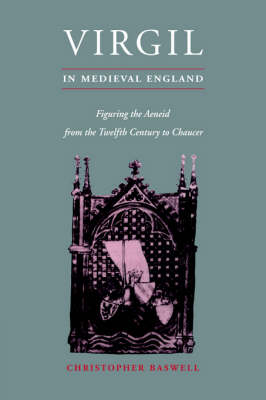Cambridge Studies in Medieval Literature
1 total work
What happens when a prestigious text of one period is read and reused in a different, much later world? What can we learn from the annotations accumulated by a single manuscript as it moved among different institutions and readerships? In this study Christopher Baswell takes as his model Virgil's ancient epic poem The Aeneid, which held many kinds of appeal for the culture of the Middle Ages. He examines a series of Latin manuscripts of the text which were copied in twelfth-century England but reused and reannotated for three centuries, and shows how their users approached the epic in very different ways. He then charts the progression from the Latin of the original to the vernaculars of the Roman d'Eneas and Chaucer's House of Fame and Legend of Good Women, to show how medieval vernacular poets used Virgil's prestige to lay their own claim to poetic and even political authority.
